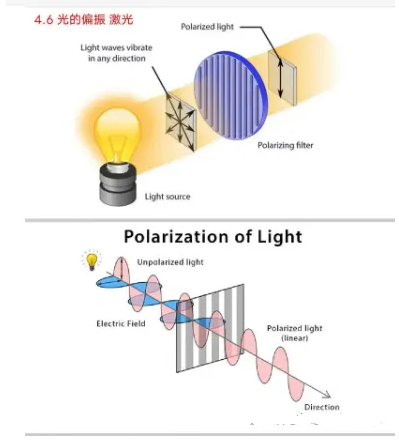“Polarization” is a common characteristic of various lasers, which is determined by the formation principle of the laser. The laser beam is produced by the stimulated radiation of the light-emitting medium particles inside the laser. Stimulated radiation has a remarkable characteristic: when an external photon hits a particle in a higher energy state, the particle radiates a photon and transitions to a lower energy state. The photons produced in this process have the same phase, propagation direction and polarization state as the foreign photons. When a photon stream is formed in a laser, all photons in a mode photon stream share the same phase, propagation direction, and polarization state. Therefore, a laser longitudinal mode (frequency) must be polarized.

Not all lasers are polarized. The polarization state of the laser is affected by a number of factors, including:
1. Reflection of the resonator: In order to ensure that more photons are localized to form stable oscillations in the cavity and generate laser light, the end face of the resonator is usually plated with an enhanced reflection film. According to Fresnel’s law, the action of the multilayer reflective film causes the final reflected light to change from natural light to linearly polarized light.
2. Characteristics of the gain medium: laser generation is based on stimulated radiation. When excited atoms radiate photons under the excitation of foreign photons, these photons vibrate in the same direction (polarization state) as the foreign photons, allowing the laser to maintain a stable and unique polarization state. Even small changes in the polarization state will be filtered out by the resonator because stable oscillations cannot be formed.
In the actual laser manufacturing process, the wave plate and polarization crystal are usually added inside the laser to fix the stability condition of the resonator, so that the polarization state in the cavity is unique. This not only makes the laser energy more concentrated, the excitation efficiency is higher, but also avoids the loss caused by the inability to oscillate. Therefore, the polarization state of the laser depends on many factors such as the structure of the resonator, the nature of the gain medium and the oscillation conditions, and is not always unique.
Post time: Jun-17-2024





